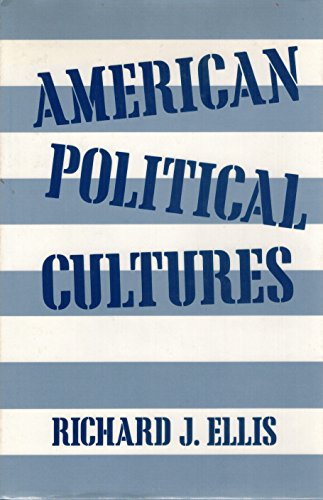American Political Cultures
Free download. Book file PDF easily for everyone and every device. You can download and read online American Political Cultures file PDF Book only if you are registered here. And also you can download or read online all Book PDF file that related with American Political Cultures book. Happy reading American Political Cultures Bookeveryone. Download file Free Book PDF American Political Cultures at Complete PDF Library. This Book have some digital formats such us :paperbook, ebook, kindle, epub, fb2 and another formats. Here is The CompletePDF Book Library. It's free to register here to get Book file PDF American Political Cultures Pocket Guide.
Contents:
Log in to Wiley Online Library
Political culture has been studied most intensively in the context of established Western democracies. Based on surveys conducted in the United States, Britain, West Germany , Italy, and Mexico, this landmark investigation sought to identify the political culture within which a liberal democracy is most likely to develop and consolidate. In a parochial political culture, the citizens are only indistinctly aware of the existence of central government.
In a subject political culture, the citizens see themselves not as participants in the political process but as subjects of the government. In a participant political culture, the citizens believe both that they can contribute to the system and that they are affected by it. This mix is known as civic culture.
- Marinos the ICU Book!
- Research Methods in Theatre and Performance (Research Methods for the Arts and the Humanities)!
- Asterisk Hacking. Toolkit and Live Cd!
- Essential Concepts of Electrophysiology through Case Studies: Intracardiac EGMs!
In this ideal combination, the citizens are sufficiently active in politics to express their preferences to rulers but not so involved as to refuse to accept decisions with which they disagree. Thus, the civic culture resolves the tension within democracy between popular control and effective governance.

In both countries, the citizens felt that they could influence the government. Following the pioneering footsteps of The Civic Culture , American political scientist Robert Putnam argued that civic community , based on high levels of political interest, social equality, interpersonal trust, and voluntary association, leads to higher probabilities of effective governance and democracy. Political culture is the property of a collectivity—for example, a country, region, class, or party. While most studies of political culture concentrated on national cultures , some studies focused on territorially defined units at the subnational level, such as the political cultures of American states, Canadian provinces, or Italian regions.
Other studies analyzed the cultural attributes of social groups such as the political elite , the working class, and the like. Political culture.
Info Print Cite. Submit Feedback. Thank you for your feedback. Hartz, L. The liberal tradition in America.
A Cause in Search of Its Effect, or What Does Political Culture Explain?
New York. The founding of new societies. Inkeles, A. National character: The study of modal personality and sociocultural systems. In The handbook of social psychology , 2d ed. Lindzey and E. Reading, MA. Keesing, R.
American Political Ideals
Theories of culture. In Annual review of anthropology , Vol.
Siegel, et. Palo Alto. King, A. Ideas, institutions, and the policies of governments. British Journal of Political Science 3: —,— Lane, R. Political ideology. Lowi, T. The public philosophy: Interest-group liberalism. American Political Science Review 61 March : 5— Manzer, R. Public policies in Canada: A developmental perspective.
Merton, R.
Social structure and anomie. In Social theory and social structure , rev. Parson, T.
- State Political Culture.
- Disruptive Religion: The Force of Faith in Social Movement Activism!
- The Babe and the Baron!
Shils, eds. Toward a general theory of action. Putnam, R. Rosenberg, M.

Test standardization as a method of interpretation. Social Forces 41 October : 53— Segall, M. Campbell, and M. The influence of culture on visual perception.
- Decoding the Heavens: A 2,000-Year-Old Computer--and the Century-Long Search to Discover Its Secrets
- Differential equations
- Expectations of Happiness: A Companion Volume to Jane Austens Sense and Sensibility
- Managing Economic Volatility and Crises: A Practitioners Guide
- Battlefield Acoustics
- A Primer of Infinitesimal Analysis
- Introduction to Optimization Analysis in Hydrosystem Engineering